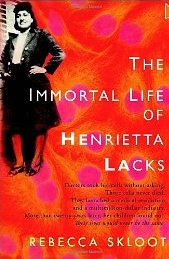January 28th, 2011 by Berci in Quackery Exposed, Research
No Comments »

Luc Montagnier received the 2008 Nobel Prize for his discovery of the human immunodeficiency virus (HIV), but now he’s come up with a more-than-strange theory. He thinks DNA can teleport from one tube to another via electromagnetic signals. Is this the so-called “Nobel disease?”
French virologist Luc Montagnier stunned his colleagues at a prestigious international conference when he presented a new method for detecting viral infections that bore close parallels to the basic tenets of homeopathy.
Although fellow Nobel prize winners — who view homeopathy as quackery — were left openly shaking their heads, Montagnier’s comments were rapidly embraced by homeopaths eager for greater credibility.
Montagnier told the conference last week that solutions containing the DNA of pathogenic bacteria and viruses, including HIV, “could emit low frequency radio waves” that induced surrounding water molecules to become arranged into “nanostructures.” These water molecules, he said, could also emit radio waves.
He suggested water could retain such properties even after the original solutions were massively diluted, to the point where the original DNA had effectively vanished. In this way, he suggested, water could retain the “memory” of substances with which it had been in contact — and doctors could use the emissions to detect disease.
*This blog post was originally published at ScienceRoll*
January 13th, 2011 by Harriet Hall, M.D. in Book Reviews, Research
No Comments »

 One of our readers suggested that I review the book The Great Influenza: The Epic Story of the Deadliest Plague in History, by John M. Barry. It’s not a new book (it was published in 2004) but it is very pertinent to several of the issues that we have been discussing on this blog, especially in regards to the current anti-vaccine movement. It’s well worth reading for its historical insights, for its illumination of the scientific method, and for its accurate reporting of what science has learned about influenza.
One of our readers suggested that I review the book The Great Influenza: The Epic Story of the Deadliest Plague in History, by John M. Barry. It’s not a new book (it was published in 2004) but it is very pertinent to several of the issues that we have been discussing on this blog, especially in regards to the current anti-vaccine movement. It’s well worth reading for its historical insights, for its illumination of the scientific method, and for its accurate reporting of what science has learned about influenza.
In the great flu epidemic of 1918, influenza killed as many people in 24 weeks as AIDS has killed in 24 years. It’s hard to even imagine what that must have been like, but this book helps us imagine it. It tells horror stories: Children found alone and starving beside the corpses of their parents in homes where all the adults had died, decomposing bodies piling up because there was no one left who was healthy enough to bury them.
Sometimes the disease developed with stunning rapidity: During one three-mile streetcar trip, the conductor, three passengers, and the driver died. In another incident, apparently healthy soldiers were being transferred to a new post by train: During the trip, men started coughing, bleeding, and collapsing; and by the time it arrived at its destination, 25 percent of the soldiers were so sick they had to be taken directly from train to hospital. Two-thirds of them were eventually hospitalized in all, and 10 percent of them died. The mind boggles. Read more »
*This blog post was originally published at Science-Based Medicine*
January 5th, 2011 by Elaine Schattner, M.D. in Better Health Network, Health Tips, News, Opinion, Research
No Comments »

Three recent stories lead me to my opening topic for the year: The value of open-mindedness. This characteristic — a state of receptiveness to new ideas — affects how we perceive and process information. It’s a quality I look for in my doctors, and which I admire especially in older people.
Piece #1 — On the brain’s maturity, flexibility and “cognitive fitness”
For the first piece, I’ll note a Dec 31 op-ed piece that appeared in the New York Times: This Year, Change Your Mind, by Dr. Oliver Sacks, the neurologist and author. In this thoughtful essay, he considers the adult brain’s “mysterious and extraordinary” power to adapt and grow: “I have seen hundreds of patients with various deficits — strokes, Parkinson’s and even dementia — learn to do things in new ways, whether consciously or unconsciously, to work around those deficits.”
With appropriate and very-real respect, I question Sacks’ objectivity on this subject — he’s referred some of the most outstanding (i.e. exceptional) neurological cases in the world. And so it may be that his careful reports are perfectly valid but not representative; for most of us, the adult brain’s capacity to establish new circuitry for language learning or music appreciation may be limited. What his stories do show is that unimaginably strange things happen in our brains, at least occasionally. And maybe we should just accept that and take notes (as he does so carefully), and keep an open mind. Read more »
*This blog post was originally published at Medical Lessons*
January 5th, 2011 by Toni Brayer, M.D. in Better Health Network, Book Reviews, Opinion, Research
No Comments »

 If you like science, true history, and an engaging story, pick up the new book by journalist Rebecca Skloot, “The Immortal Life of Henrietta Lacks” and prepare for a great read. I knew nothing about the young black woman whose cells were taken back in 1951 by a scientist at Johns Hopkins Hospital and how those cells have revolutionized modern cell biology and research.
If you like science, true history, and an engaging story, pick up the new book by journalist Rebecca Skloot, “The Immortal Life of Henrietta Lacks” and prepare for a great read. I knew nothing about the young black woman whose cells were taken back in 1951 by a scientist at Johns Hopkins Hospital and how those cells have revolutionized modern cell biology and research.
The HeLa (named after HEnrietta LAcks) cells were taken as she lay dying on the “colored” ward at Johns Hopkins Hospital of aggressive cervical cancer at age 30. Everyone who studies basic cell biology has heard of HeLa cells because they were the first human cell line to be successfully grown in culture and they are alive today. HeLa cells were sent to researchers all across the globe and have been used to develop the polio vaccine, viruses, cloning, gene mapping and in-vitro fertilization. Billions of the same immortal HeLa cells are used by researchers fighting cancer, multiple sclerosis, heart disease, and diabetes. Read more »
*This blog post was originally published at EverythingHealth*
December 31st, 2010 by PeterWehrwein in Better Health Network, Health Tips, News, Research
1 Comment »

 Does echinacea, the popular natural cold remedy, really work?
Does echinacea, the popular natural cold remedy, really work?
It depends on what you mean by “work.” Results [recently] reported in the Annals of Internal Medicine found that echinacea may reduce the length of a week-long cold by 7 to 10 hours and make symptoms a little less onerous. That can’t be characterized as a major effect, so many people may figure that the trouble and expense of echinacea just isn’t worth it (fortunately, side effects from echinacea don’t seem to be much of an issue.)
But others may decide that some benefit is better than none, and these results do fit with others that have left the door slightly ajar for echinacea having some effect as a cold remedy — a modest effect, but an effect, nonetheless.
A summary for patients published by the Annals summed up the situation nicely:
People who take echinacea to treat colds may experience a decrease in the length and severity of their cold symptoms but to such a small degree that they may not care about the difference. Although many studies of echinacea have been performed, researchers still disagree about its benefits in treating the common cold. This study is unlikely to change minds about whether to take this remedy.
Have you tried echinacea as a cold remedy? Has it worked? How do research findings, pro and con, affect your opinion of so-called alternative medicines?
Many of the echinacea studies, especially early on, were sponsored by companies making or selling the product. This study was supported by a grant from the National Center for Complementary and Alternative Medicine, which is part of the National Institutes of Health.
– Peter Wehrwein, Editor, Harvard Health Letter
*This blog post was originally published at Harvard Health Blog*

















